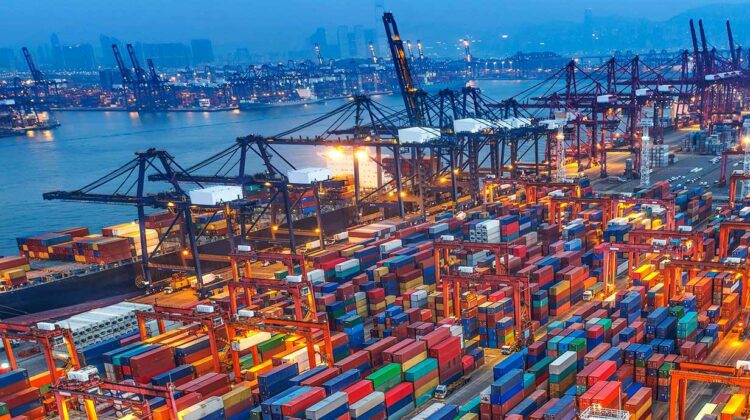
Govt keen to utilise India Ports Global for running ports secured overseas on G2G basis
NEW DELHI : The Union government is veering around to the view that it should utilise India Ports Global Ltd to own and run ports secured overseas on government-to-government (G2G) basis as New Delhi seeks to limit the political fallout of nominating a private firm to run such facilities in the backdrop of the recent developments surrounding the Adani Group.
In 2021, the government nominated Adani Ports and Special Economic Zone Ltd (APSEZ), the ports unit of the infrastructure conglomerate, as the Indian partner to construct and run the West Container Terminal in the strategically important Colombo Port on a G2G basis.
“The terminal at Colombo was given to APSEZ by the government on a platter. It is a gold mine for Indian container transhipment cargo. Together with the container transhipment port it is building at Vizhinjam in Kerala, APSEZ can play around with the two facilities,” an industry official said, asking no to be named.
This deal is among the accusations levelled by political opponents to suggest that the Ahmedabad-based group “benefitted” from contract wins due to its proximity to Prime Minister Narendra Modi. The Adani Group has denied these allegations.
India Ports Global Ltd is a unit of Sagarmala Development Company Ltd, a government entity controlled by the Union Ministry of Ports, Shipping and Waterways. It is tasked with developing and running the Chabahar port in Iran.
“Many countries are ready to entrust India with the operation and management of their ports on a G2G basis,” said a government official briefed on the plan.
East Africa, Indonesia and Sri Lanka are on the radar of the government for port operations due to the good diplomatic relations with these nations.
“There are discussions happening in Delhi; now everybody wants India,” he said. “We can get ports in East Africa, Indonesia and Sri Lanka at low rates,” he said.
“Africa is the next growth story. India should utilise the India Ports Global vehicle to quickly move into the African region and start operating and managing ports there. Even in Sri Lanka and Indonesia which have very good relations with India, we should work out some deals quickly,” the official said.
India Ports Global is currently running only the port at Chabahar in Iran.
“The government should seriously think of giving more ports it gets overseas on G2G basis to India Ports Global for operations. It is such a strategic sector. Instead of giving ports overseas to Indian private entities, the government should give them to India Ports Global so that they remain under the control of the government of India. At the end of the day, if someone like Adani takes over, it is not the Government of India,” he stated, in an obvious reference to the deal at Colombo Port.
And IPGL, the official said, should find port developers and operators, both Indian and global, who will invest in cargo terminals, but the port ownership will always be with the government of India.
“This model has been proposed in 2-3 port projects overseas. IPGL will act as a landlord, but the cargo operations will be outsourced. The government of India should seriously think of that before China takes over everything,” he said.
Given the multitude of geopolitical issues surrounding Chabahar port, India should also try to get other ports through IPGL, he added.
Jawaharlal Nehru Port Authority, the State-owned entity that runs India’s second biggest container gateway near Mumbai, is also said to be keen on operating ports outside India.
“Jawaharlal Nehru Port Authority is building a new mega port at Vadhavan in Maharashtra. It’s a triple AAA rated entity with zero leverage and hence has strong credentials to pursue port opportunities abroad on behalf of the government,” the official said.
The planned West Container Terminal (WCT) will fulfil India’s long-standing aspiration for a presence in Colombo port — a regional transhipment hub through which a large portion of India’s export-import cargo containers are transhipped — for strategic and security considerations, particularly due to Chinese involvement in Sri Lanka’s maritime sector.
Colombo Port is the most preferred regional hub for transshipment of Indian cargo containers and mainline ship operators. Indian transhipment containers accounted for 45 per cent or 2.5 million TEUs of Colombo’s total container transhipment volume of 5.6 million TEUs.
“Given this backdrop, it is difficult to fathom why the government nominated Adani Ports and Special Economic Zone for the West Container Terminal project,” the official said.
Adani Ports will hold 51 percent in the terminal that will be designed to handle 3.8 million twenty-foot equivalent unts (TEUs) a year in multiple phases over a 35-year contract. APSEZ and its two local Sri Lankan partners will invest some $650 million to build the terminal, and the first phase of 1 million TEUs is expected to start operations in December this year.

